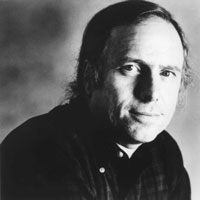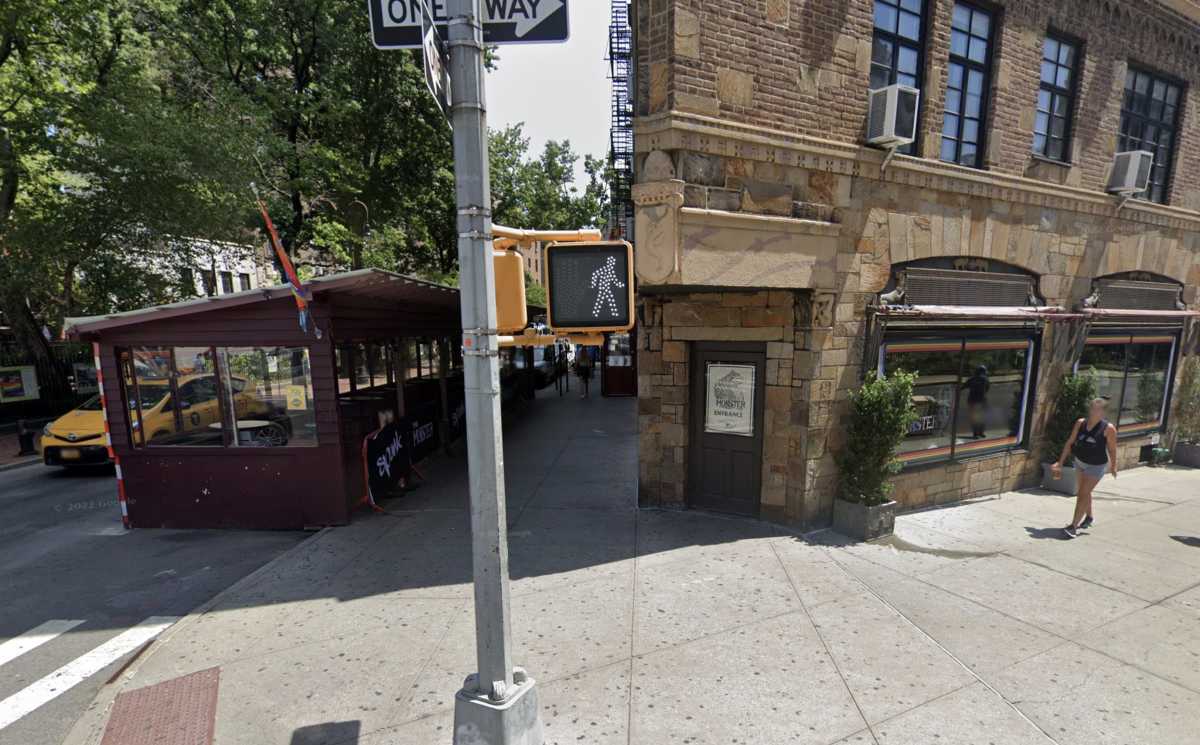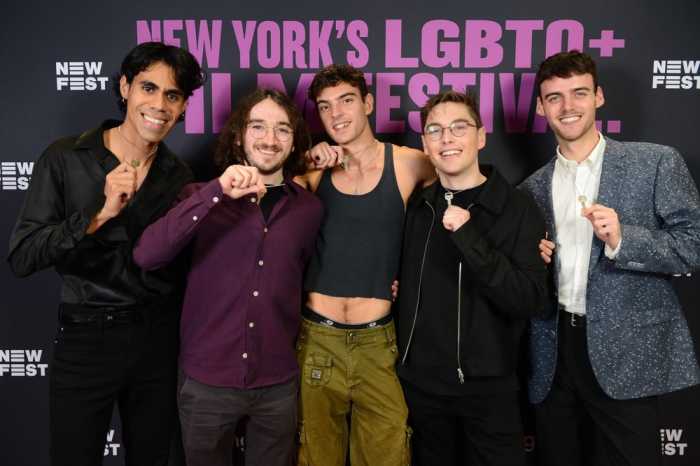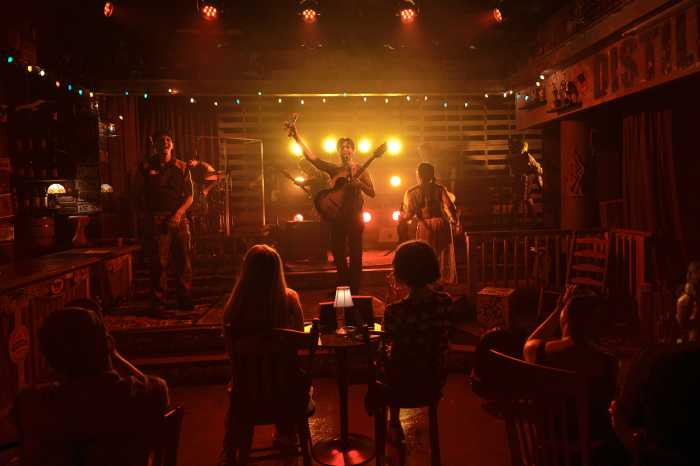By Timothy Lavin
In the opening chapter of “Moby Dick,” Herman Melville marvels at 19th Century New Yorkers near the waterfront: “posted like silent sentinels all around the town…thousands upon thousands of mortal men fixed in ocean reveries.” Inlanders all, he writes, “they come from lanes and alleys, streets, avenues — north, east, south, and west. Yet here they all unite.”
Today, the waterfront Melville admired stands largely obscured by the FDR Drive, and the Seaport crowds tend to gather in Pizzeria Uno or on bar patios. But at the Melville Gallery, a small, tidy space on Water Street that hosts readings and art exhibits, the smell of fish, fresh and otherwise, still lingers pungently.
Ian Frazier, a New Yorker writer and author of several books, including “On the Rez” and “Dating Your Mom,” arrived at the Seaport Museum gallery recently to read and discuss his latest, “The Fish’s Eye,” a collection of 17 essays about fishing and attendant meditations.
Some of the most entertaining stories in the book describe fishing in and around Manhattan. In his opening essay, “Anglers,” he describes a Harlem youngster using his apartment keys as a sinker in a dirty city pond.
In “On Urban Shores,” Frazier, an Ohio native, provides an appreciative overview of his favorite fishing haunts during his early days at the New Yorker. Many of them, due to burgeoning waterfront development, no longer abide fishermen, to his dismay.
“I used to live on Canal Street,” he told his audience after reading the essay. “I would walk right over here and fish. I would think, ‘You know, I’m living in the greatest city in America and I have pretty good fishing right out my door — that’s incredible.’ I really do think that if you have good fishing, it just adds something to a city that is very magical.”
Angling is a solitary and contemplative pursuit. And Frazier, a quiet and genially self-effacing speaker, generally does his best to avoid other fishermen in his stories.
“There’s a deep lonesome willfulness to it that just isn’t sociable at all,” he writes.
In part, this explains his propensity for moving to Montana, which he has done several times over the last 20 years. With its negotiable speed limits, unbounded wilderness and trout of unusual proportion, it seems like the antithesis of the downtown rush hour, where, Frazier said, city health officials once advised fishermen to avoid eating too much of their catch.
“There’s something constricting about all this that surrounds us in the city,” he said in an interview after the talk. “And there’s a whole tradition of just lighting out for the territory and saying, ‘You know, [screw] you, I’m out of here. I don’t have to do this. There’s a huge country out there.’”
Yet Frazier has returned to New York again and again, and some of the most original prose in “The Fish’s Eye” attempts to reconcile city and wilderness, Manhattan and Missoula.
For instance, one essay about a famed fishing river in the Adirondacks, “On the Ausable,” opens with a litany of novel comparisons. “Big rocks of the kind people sun themselves on in Central Park;” “granite boulders the light gray or rose-pink of building fronts,” and “tea-color water” pouring “steadily over lips as smooth as subway stairs.”
Yet even when traversing his favorite stretches of the Montana wild, he fears for its eventual development.
“I foresee rows of condominiums, or an expansion of the gravel pit, or a public park featuring hiking trails and grim pieces of exercise equipment every twenty yards. That last choice, in all its worthy banality, somehow is the most disheartening of all,” he writes.
In a genre that succumbs easily to sentimentality and cliché, Frazier capably creates original metaphors and writes with an unrelenting honesty. There are no stories of bonding with his dad in a trout stream; his father actually deplored the sport. Indeed, though generally optimistic, Frazier’s essays brim with a fascinating, anguishing ambiguity: how to square his love for fishing with his love for fish.
He plainly admires, even envies, his prey. After snaring several brown trout in “In the Brain,” he appraises them:
“As I revived them before releasing them, my two hands barely able to fit around the breadth of their sides, I looked again and again at their eyes. They held a concentrated intentionality, a consciousness I could only guess at.”
Indeed, seeing the world through the fish’s eye is harder than one would imagine. At one point Frazier decides to eat mayflies. (Because the fish eat them.) He treks through putrid, insect-infested swampland, and follows polluted New Jersey streams. After an angling success, he often hears the echo of his father’s long-ago supplications to let his captured fish go.
Problematically, he generally seems to find communion—or at least parity—with the natural world that the fish inhabit only when he catches one.
When he fails, the wilderness “all seems vaguely to make fun of you. I’m not really there until I catch a fish,” he writes. Yet if this is the precondition for his metaphysical entry into the wilderness, it’s an inescapably violent one. And, it seems, to truly appreciate his quarry he must either kill it or maim it. He explained the paradox with characteristic candor at the reading.
“Well, when I was a kid I was incredibly bloodthirsty. Not a moment of remorse,” he said. “But as I got older, more and more I started seeing it from the point of view of the fish. I mean, do fish feel pain? Yeah, fish do feel pain. The more I do it, the older I get, I like to see the fish, and I want to fool them. I don’t want to feel that I was not up to the task of fooling the fish. But I catch one good fish and I’m done. And I eat what I catch, right down to the bone.”
He concluded, by reading an essay titled “Bad Advice,” which chronicles his encounters with those banes of adventurous fishermen everywhere, liars. It summarizes the whole fishing endeavor.
“We go forth in abundant ignorance,” he writes, “near-blind with fantasy, witlessly trusting words on a page or a tip a guy we’d never met before gave us at a sporting-goods counter in a giant discount store.”






































